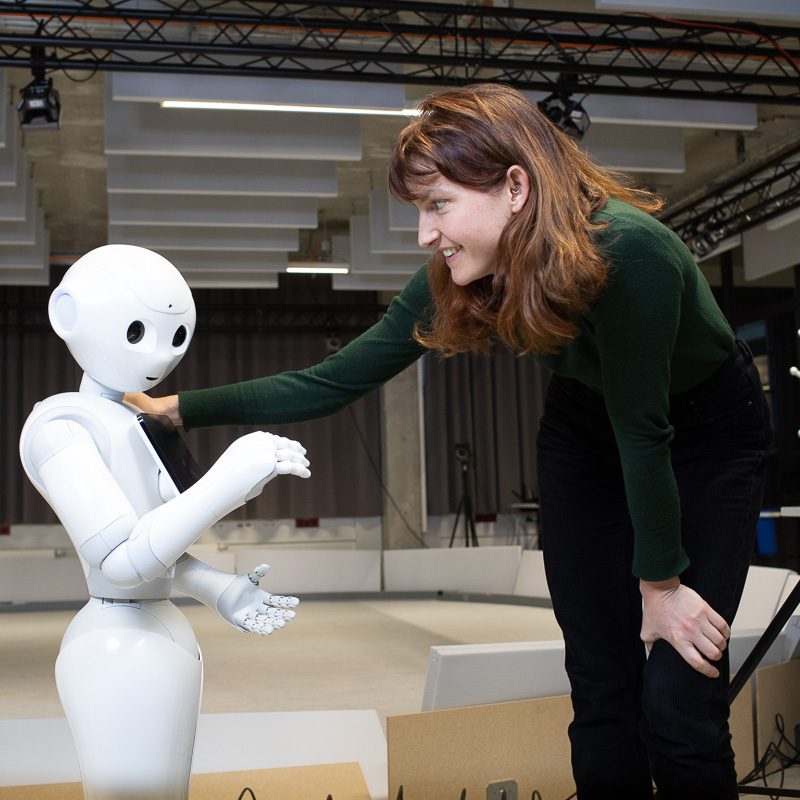
- This event has passed.
Mary Ellen Foster (University of Glasgow), “Face-to-face conversation with socially intelligent robots”
15 January @ 4:00 pm - 6:00 pm
When humans talk to each other face-to-face, they use their voices, faces, and bodies together in a rich, multimodal, continuous, interactive process. For a robot to participate fully in this sort of natural, face-to-face conversation in the real world, it must also be able not only to understand the social signals of its human partners, but also to produce appropriate signals in response. In this talk, I will present recent research from my group in this area, and will also discuss the issues involved in moving social robots from the lab to real-world contexts, which involves consultation with a large number of stakeholders.
Dr Mary Ellen Foster is a Senior Lecturer in the School of Computing Science at the University of Glasgow. Her primary research interests are human-robot interaction, social robotics, and embodied conversational agents. She recently coordinated the MuMMER project, a European Horizon 2020 project in the area of socially aware human-robot interaction, and is currently coordinating a UK/Canada collaborative project investigating the use of socially intelligent robots in paediatric emergency rooms. She obtained her PhD from the University of Edinburgh in 2007 and has previously worked at the Technical University of Munich and Heriot-Watt University.
This talk will take place as part of SCIoI member Jonas Frenkel’s seminar “Artificial Social Intelligence.” It aims to provide a comprehensive exploration of ASI, which involves the observation, analysis, and synthesis of social phenomena. It integrates synthetic sciences such as machine learning, computer vision, and robotics with cognitive science, psychology, neuroscience, and the humanities to focus on the perception, cognitive components, and behaviors linked to social intelligence.
This talk will take place in person at SCIoI.





